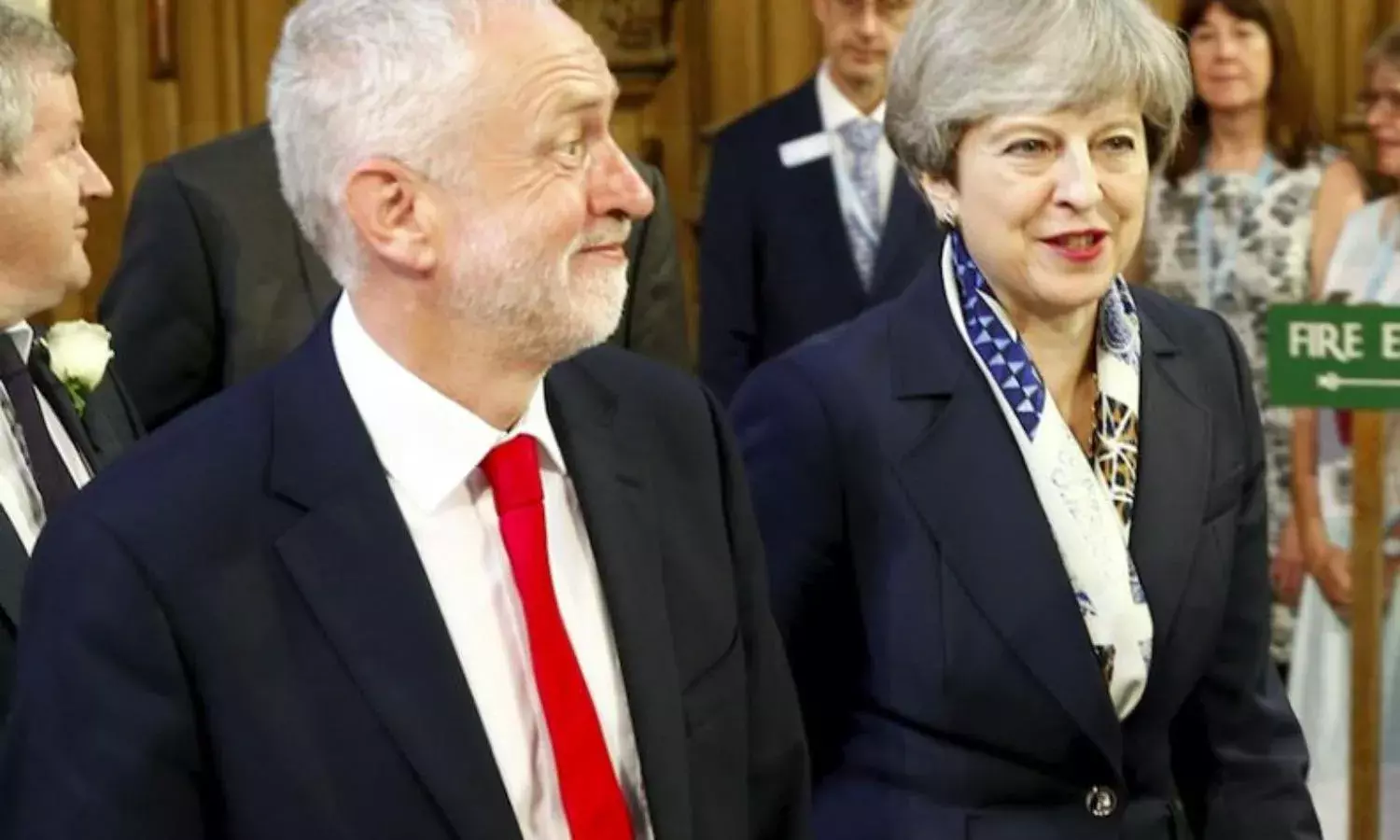May Survives No-Confidence from Own MPs, but Brexit Chaos Will Continue
An interview with politics professor Scott Lucas

In a historic development, 48 letters from Conservative Party MPs motioned a no-confidence vote against British prime minister Theresa May after she delayed the December 11 Brexit vote in the House of Commons.
May needed 159 votes to protect her government for another year. In the event the PM won 200 votes in her favour to 117 against.
In spite of her victory, Conservative MPs such as Bernard Jenkin said the party had ‘lost all authority in the House of Commons. We rely on the DUP (Democratic Unionist Party) but May has lost their trust with her Brexit deal. There’s no sign that this breach can be repaired. We must remember that the UK changed its PM in May 1940 during a monstrously greater national crisis, when Chamberlain was replaced by Churchill. It can happen again.’
Meanwhile, Sky News revealed that very high-level Tory funders and lobbyists had circulated a letter asking MPs to support the PM.
85-year-old Conservative MP Lord Heseltine said, ‘The 70% of the young generation in Britain that wants to remain is being betrayed by the 70% of the elder generation that wants to leave.’ He also asked, with regard to the no-confidence motion, ‘What’s the point of changing the singer if you don’t change the song?’
And in an aggressive exchange of remarks with Labour leader Jeremy Corbyn in the House of Commons, PM May declared, ‘The biggest threat to the UK is not leaving the EU but having a Corbyn government.’
As the political tumult subsides, for now, let’s have a look at what really caused Brexit, and what its future implications are likely to be. We speak with Scott Lucas, a professor of international politics at the University of Birmingham who specialises in British and US foreign policy.
Why did the concept of Brexit really emerge in the UK? Was it against the free movement of workers or capital; does it reflect racist tendencies against immigrants?
Brexit, as an expression for UK withdrawal from the European Union, is propelled by multiple concerns. Among these are ‘immigration’, often constructed on the basis of emotion rather than fact; issues over public services, with Brussels scapegoated to cover for deficiencies in the UK government's provision; British (perhaps better seen as English) identity; and a sense of disenfranchisement fed by the 2008 economic downturn.
What are the likely scenarios around the Brexit vote in Parliament?
The government has now postponed the vote to January. It will seek changes to the Northern Ireland and Ireland ‘backstop’ from the European Union, but it is unlikely to gain a shift. This leaves us with ‘no plan or all plans’: No Deal, a Parliamentary proposal, a general election, or a second referendum are all possible.
I believe the most likely outcome is a No Deal on March 29 (the deadline for a Brexit deal), followed by economic chaos and then a general election or second referendum.
How would Brexit affect ideas like social liberalism, globalisation and multi-culturalism?
Brexit is a setback for social liberalism and multi-culturalism, playing as it does to an insular English identity. My hope is that younger generation will continue to recognise the value of a socially liberal, multi-cultural, tolerant society. Otherwise, everyone will pay a price in a more confrontational daily life.
What is the post-Brexit economic trade framework for the EU and the UK?
We don't know yet. If there is No Deal, the framework will be on World Trade Organisation terms, with a projected relative loss of 9% in GDP. Under the May government's plan, the ‘transition’ is an ongoing single market and customs, but the long term is uncertain, with a projected 4% relative loss in GDP.
And the impact on Northern Ireland and Ireland?
A No Deal would bring the prospect of a ‘hard border’, which would undo arrangements in the 1998 Good Friday Agreement that eased the decades-long conflict. It would also cause great damage to cross-border trade and economies. The May plan with a ‘backstop’ would buffer against this.
If the backstop is removed, the cost of the hard border is revived.
Has there been any Russian influence in the Brexit vote?
There is alleged Russian meddling through finance of the Leave campaign. That is still being determined, but Russian state propaganda has loudly promoted Brexit - and the disorder caused by the argument over its terms.
What are the major challenges May currently faces from within her own party?
The greatest challenge is from those who want a No Deal or ‘hard’ Brexit. A lesser but significant challenge is from those who wish to remain in the EU.
What kind of Brexit deal did Labour support? And what are the challenges facing Jeremy Corbyn?
It is unclear what deal Labour is supporting. Its general line is that it wants a single market and custom union, but wants to reject free movement. None of the plans currently in circulation pursue this.
What about another People’s Vote on Brexit?
The challenge is in getting Parliament to approve the second referendum. The political will is unlikely to be there before the UK suffers serious economic damage.
How would Brexit impact British citizens working in the EU and vice versa?
The May government and the EU have said that those already in each other's countries will be safeguarded. However, even if this transpires in a final agreement, it will be far more difficult for Britons to move to and live in EU countries, and vice versa.



